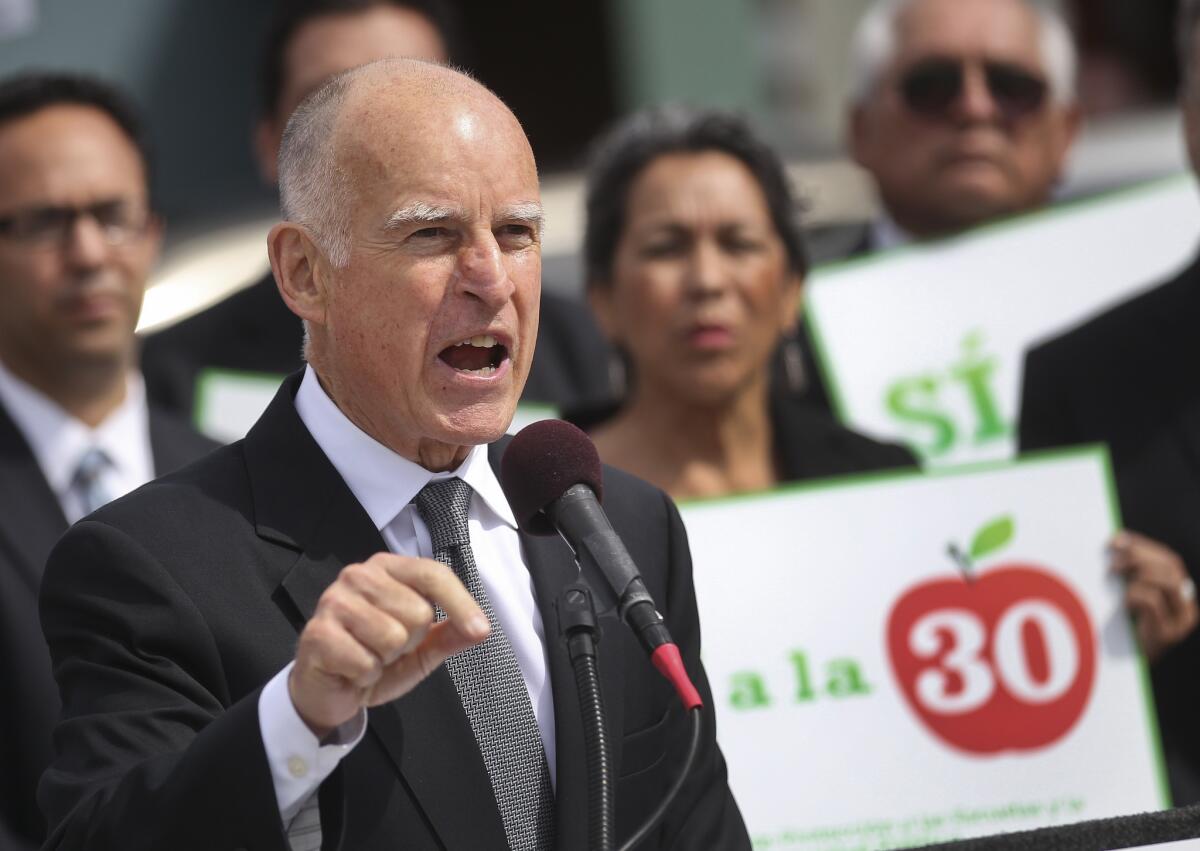The compelling case for Prop. 30

Opponents of Proposition 30, Gov. Jerry Brown’s ballot initiative to raise money for schools and other state programs, have tried to convince voters not just that the new tax dollars wouldn’t go to schools but that the extra revenue isn’t really needed. Nor does the public need to worry about the cuts that state law mandates to schools and higher education if Proposition 30 fails, the critics say.
The dust kicked up by the opposition is obscuring what’s really at stake. If Brown’s proposition fails, it would leave the state with an $8.5-billion hole in its budget — almost twice as large a gap as the alternative cuts floated by GOP leaders. Under any scenario, schools and other crucial programs would have to take a significant hit.
Brown came into office almost two years ago promising to avoid fiscal gimmickry and bring real structural change to the budget, and he’s largely kept that pledge. The Legislature has enacted $23 billion in cuts from state programs, holding general fund spending more than 10% below its 2007-08 peak. Those cuts — to social programs, criminal justice, redevelopment, schools and higher education, among other priorities — have largely fallen on the poor and others outside of the middle-class mainstream. But there’s only so much the state can take out of safety-net programs; in fact, the courts have forced lawmakers to reverse some cuts because they went further than the law allowed.
ENDORSEMENTS: The Times’ recommendations for Nov. 6
The GOP’s supposed alternative duplicates a number of steps the state has already taken or has rendered moot through restructurings. In addition, Brown has vowed to stick with the “trigger cuts” the Legislature included in the 2012-13 budget. The largest of these — $4.6 billion — hits public schools. That would reduce spending by about $700 per pupil and lead districts to cancel up to three weeks’ worth of classes — hardly what California’s already suffering students need.
Also on tap if Proposition 30 fails: a $150 increase in California State University fees per semester, $375 million in cuts to the University of California system and the elimination of $20 million in state aid to city police departments. An additional $80 million in cuts to various state departments could result in the closure of some CalFire stations, eliminate seasonal lifeguards at state parks, roll back some flood-control and boating safety programs, reduce the number of park rangers and curtail some services for the developmentally disabled.
Brown’s opponents like to focus on straw men like the high-speed rail line (which the state hasn’t started to pay for yet) or state worker pensions (whose costs can be trimmed in the long term but not the near future). But the truth is that if Proposition 30 fails, the state will have to slash schools and other programs that voters care deeply about. The best way to avoid that is to pass Proposition 30.
More to Read
A cure for the common opinion
Get thought-provoking perspectives with our weekly newsletter.
You may occasionally receive promotional content from the Los Angeles Times.






